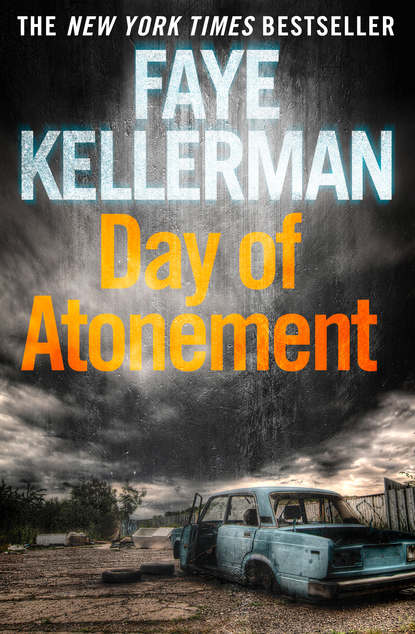По всем вопросам обращайтесь на: info@litportal.ru
(©) 2003-2025.
✖
Day of Atonement
Автор
Год написания книги
2019
Настройки чтения
Размер шрифта
Высота строк
Поля
Their offerings might have been wonderful projective tests, but Decker didn’t feel they gave a clue to the boy’s location. He thanked the young ladies for their time.
The boys were holed up in a guest bedroom that was hot and stuffy from sweat and hormones. The younger kids were running around, crashing into the twin beds and the walls. Five older ones had taken out a Talmud and were learning in the corner. All wore black hats and had their hair cut Marine short, which drew Decker’s attention to their ears. Some were big, some flat, some had banjo lobes, some stuck out like Alfred E. Newman’s. As he approached the group, one of the older boys put down the volume of Talmud and looked up. He had blue eyes, soft skin, also with a hint of peach fuzz. His features were those of Noam Levine, but softer, more rounded. He appeared to be around fifteen.
“Hi,” Decker said. “Aaron Levine?”
The teenager nodded.
“Your uncle Jonathan said you have a key to your house,” Decker said. “I want to look through Noam’s room.”
Again, Aaron nodded.
“Does he have his own room?” Decker asked.
“He shares with me and Boruch.”
Aaron’s eyes fell upon his younger brother. Boruch was around twelve. There was a definite family look—smooth skin, blue eyes, good jawline, dark hair. All of them resembling Breina. But Noam, at least from the photograph, projected a huskier build.
Decker told the brothers to hang on a moment and questioned the cousins first. The boys were polite and cooperative, anxious to help. The oldest one was Shimon’s son. He was Aaron’s age—almost sixteen—and didn’t have much to do with Noam. The other two also kept their distance. They all explained that their cousin was prone to wandering off by himself, but they seemed genuinely puzzled by his disappearance on Rosh Hashanah. That was not like him. After five minutes more of questioning, Decker felt they really didn’t know anything and let them go.
Then he concentrated on Noam’s brothers. Both Aaron and Boruch seemed nervous.
Decker said, “Any ideas where your brother might be?”
The boys shrugged ignorance.
“You must have some thoughts about it,” Decker pressed.
“Noam keeps to himself. He’s …” Aaron squirmed. “Lashon harah.”
Lashon harah—gossip. Disreputable in any society but a grave sin in Jewish Law. Decker said, “Aaron, if Noam is missing, I need to know everything about him. Including the incidents that make him look bad.”
“It’s nothing like that,” Aaron said. His voice cracked. A faint blush rose in his cheeks. “It’s just … Noam has a hard time fitting in. And he can be pretty obnoxious about it sometimes. It’s like he’s either off by himself or bothering me or my friends.” The teenager adjusted his hat. “Then … out of the blue, he’ll be the nicest person in the world for about a week. Do all your chores for you, straighten up your clothes, just be real … nice. But it never lasts long. I can’t figure him out. Honestly, I’ve given up trying.”
Boruch was nodding in agreement.
Decker said, “That sound about right to you?”
“Yes, sir,” Boruch said. “Noam’s always the one who remembers the birthdays, more than Abba and Eema do. But most of the time, he either ignores me or beats me up.” He paused, clearly upset. “Is he in trouble?”
Decker said, “I don’t know, Boruch.” He smiled reassuringly. It was the best he could offer the boy. “Does Noam have any hobbies—baseball-card collecting, stamp collecting? Is he into cars or hot rods?”
The boys shook their heads.
“Does he spend a lot of time riding his bike, playing sports, skateboarding—”
The boys laughed.
“Skateboarding not too big around here?”
“No,” they said in unison.
“Does he play a lot of sports?”
“Not that I know of,” Aaron said.
“Then if he doesn’t play or learn a lot,” Decker said, “if he doesn’t have any hobbies, what does he do with his time?”
Boruch said, “He spends lots of time with the computer.”
“Games?” Decker asked.
Boruch said, “We don’t own any computer games. We use it for school, for our reports. We have a Gemara program that asks us questions. It’s really neat.”
“Noam use that program?” Decker asked.
Both shook their heads no. No latency of response.
“Could you play games on the computer if you wanted to?” Decker asked.
Aaron said, “No. It doesn’t have a graphics card. Unless Noam’s put one in there. I don’t think he knows enough about computers to do that. You have to know where to put it. Then you have to reset the dipswitches. Noam can’t program. I can’t see him tinkering with the hardware.”
Boruch added, “He has trouble just using canned software.”
“Then what does he do with the computer?” Decker asked.
Aaron said, “I think he writes stuff. I once tried to look at what he was doing, but he hid the monitor with his arms.”
“Yeah, he does that to me, too.”
“Is Noam a good student?” Decker asked.
“Not really,” Aaron said. “He’s sort of … well, lazy.”
“You boys have no idea where he wanders off to?”
Again, they shook their heads.
Aaron said, “He has a few friends. They might know better than us.”
Decker said, “I’ll ask them a little later. First, how about we take a walk over to your house?”
The boys said sure.
Nice kids, Decker thought. Breina and Ezra must be doing something right.
Up until yesterday, the pain had only surfaced on his birthday. Now it was an open wound festering inside Frieda Levine’s shattered heart. None of this would ever resolve until she made peace with the one she had abandoned.
God was giving her a test, using His most precious gifts to her. Though all her grandchildren were special, Noam was her most cherished because he had always been so troubled. In the many hours they had spent together, Noam seldom talked. But oh, how he’d been captivated by her tales, entranced by the criminal cases that had passed over her desk in the years she had worked at the court.











